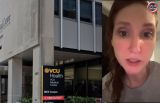NCSU Researchers Find Importance Of Teaching Critical Thinking In Battling Fake News
ByNorth Carolina State University (NCSU) researchers have found that teaching critical thinking skills in a humanities course has played a significant role in reducing student beliefs in "pseudoscience." This can help with the battle against fake news that has recently caused intense debate on social media.
Anne McLaughlin, co-author of the study and an associate professor of psychology at NCSU, said that teaching critical thinking has become more important now because of fake news. According to Telegraph, Facebook has rolled out a new tool to combat fake news.
Another author, Alicia McGill, who is an assistant professor of history at NCSU, noted that they wanted to assess how intentional educators have to be when teaching critical thinking to students. She added that they also wanted to explore what role humanities classes have in assessing the extent to which critical thinking instruction leads to the skill's improvement in students. Humanities courses are also useful for this since it provides students with tools to assess qualitative data and sort through political rhetoric.
Phys.org reported that the researchers worked with 117 students in three different classes. 59 of the students were enrolled in a psychology research methods course, which taught them statistics and study design but did not address critical thinking.
58 of the students, on the other hand, were enrolled in one or two courses on historical frauds and mysteries. This class included students who majored in science, engineering and mathematics.
The first class, with the psychology course, served as a control group. The history courses included instruction that is especially designed to cultivate critical thinking skills.
At the start of the semester, all participants took a baseline assessment of their beliefs in pseudoscientific claims. The researchers used a scale from 1, the value for "I do not believe at all," to 7 for "I strongly believe." The students also took the assessment again at the end of the semester.
It was found that the students in the two history courses had lower beliefs in pseudoscience by the end of the semester. Meanwhile, the control group did not change their beliefs.
© 2026 University Herald, All rights reserved. Do not reproduce without permission.








